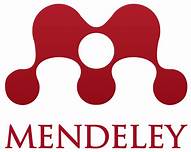Persepsi Mahasiswa Terhadap Kurikulum dan Pengalaman Pembelajaran di Perguruan Tinggi (Studi Kasus di Universitas Quality)
Abstract
This study aims to look at student perceptions of the curriculum and learning experiences in higher education (a case study at Quality University). The population is all PGSD study program students with a sample of 135 students. Data collection using survey methods and satisfaction studies.Research results: 1. The suitability of the study program curriculum with the current needs of the labor market, the results obtained are: 11.2% very suitable, 53%, 16.4% quite suitable, and the remaining 19.4% are not suitable and not suitable at all; 2. The study program curriculum prepares students with relevant skills for future careers: 20% is very adequate, 56.3% is adequate, 23% is sufficient; 3. Student responses regarding the study program curriculum integrating theory with practice required in employment: 13.3% highly integrated, 18.5% moderately integrated, 48.1% integrated, and 5.2% less integrated. The results of the learning experience research obtained the following results: 1. In obtaining support and guidance from lecturers in learning: 8.9% were very good, 21.5% were very good, so they knew how to improve good learning methods, 64.4% were good, and the rest stated that they were sufficient; 2. The effectiveness of the learning methods used at the University in facilitating the understanding and application of concepts: 7.4% are very effective and helpful, 17.8% are very effective, 50.4% are effective and 23% are quite effective. 3. Assessment of facilities and resources provided by the university to support student learning: 8.9% very good .important in supporting learning facilities both at home and at school, 15.6% very good, 51.1% rate good, and 21.5% enough.The conclusion is that students' perceptions of the curriculum and learning experience in higher education (a case study at Quality University) are very appropriate and very good.
Keywords
Full Text:
PDFReferences
Al-Awad, A. A., Bazuhair, R. S., Alhojaly, R. A., & Mossawa, M. M. (2020). The compatibility of Higher Education Outcomes with the requirements of the Labour Market in an interior design programme in the Kingdom of Saudi Arabia. Art and Design Review, 8(02), 94.
Byars-Winston, A., Gutierrez, B., Topp, S., & Carnes, M. (2011). Integrating theory and practice to increase scientific workforce diversity: A framework for career development in graduate research training. CBE—Life Sciences Education, 10(4), 357-367.
Serrano, C. M., Lagerweij, M. D., de Boer, I. R., Bakker, D. R., Koopman, P., Wesselink, P. R., & Vervoorn, J. M. (2021). Students’ learning environment perception and the transition to clinical training in dentistry. European journal of dental education, 25(4), 829-836.
Kang, Y. J., & Kim, D. H. (2021). Pre-clerkship students’ perception and learning behavior of online classes during coronavirus disease 2019 pandemic. Korean journal of medical education, 33(2), 125.
Klem, A. M., & Connell, J. P. (2004). Relationships matter: Linking teacher support to student engagement and achievement. Journal of school health, 74, 262-273.
Jarrar, M. T., Mohamed, R. B., Al-Bsheish, M., Albaker, W., Alumran, A., & Alomran, A. K. (2022). Students’ perception of quality of learning experience (structure, process and outcome): discipline versus problem based medical curriculum and the mediation role of process quality. In Healthcare (Vol. 10, No. 8, p. 1584). MDPI.
DOI: https://doi.org/10.30596/jmp-dmt.v4i3.16222
Refbacks
- There are currently no refbacks.






